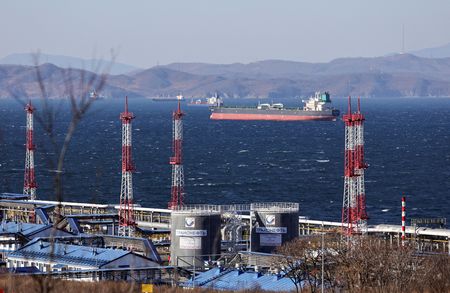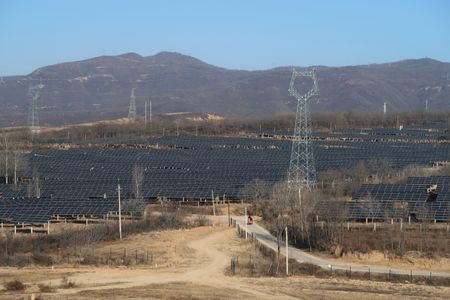By Siyi Liu
SINGAPORE (Reuters) -Chinese refineries have purchased 15 cargoes of Russian oil for October and November delivery as Indian demand for Moscow’s exports falls away, two analysts and one trader said on Tuesday.
India has emerged as the leading buyer of Russian seaborne oil, which has sold at a discount since some Western nations shunned purchases and imposed restrictions on Russian exports over Moscow’s 2022 invasion of Ukraine.
Indian state refiners paused Russian oil purchases last month, however, as those discounts narrowed. And U.S. President Donald Trump is also threatening to punish countries for buying Russian crude.
China had secured 15 Russian Urals cargoes for October–November delivery by the end of last week, said Richard Jones, a Singapore-based crude analyst at Energy Aspects.
Each Urals cargo ranges in size from 700,000 to 1 million barrels.
Kpler senior analyst Xu Muyu wrote in an August 14 report that China has likely purchased about 13 cargoes of Urals and Varandey crude for October delivery, along with at least two Urals cargoes for November.
The additional Russian Urals supply could curb Chinese refiners’ appetite for Middle Eastern crude, which is $2 to $3 per barrel more expensive, Xu said.
This, in turn, could add further pressure to the Dubai market which is already losing momentum as seasonal demand fades while competition from arbitrage supply intensifies, she added.
A trade source agreed with Kpler’s estimate, adding that the cargoes were booked mostly at the beginning of this month by Chinese state-owned and independent refineries.
China, the world’s top oil importer and largest Russian oil buyer, primarily buys ESPO crude exported from the Russian Far East port of Kozmino due to its proximity. Its year-to-date imports of Urals crude stood at 50,000 barrels per day, Kpler data showed.
Urals and Varandey crude are typically shipped to India, Kpler data showed.
Indian state-refiners have backed out Russian crude imports by approximately 600,000 to 700,000 bpd, according to Energy Aspects’ Jones.
“We do not expect China to absorb all of the additional Russian volumes, as Urals is not a baseload grade for Chinese majors,” he said, referring to Chinese state refineries which are not designed to solely process the Russian grade.
Chinese refiners will also be wary about the possibility of U.S. secondary sanctions if Trump’s push for a Ukraine peace deal breaks down, he added.
Trump said on Friday he did not immediately need to consider retaliatory tariffs on countries such as China for buying Russian oil but might have to “in two or three weeks”.
(Reporting by Siyi Liu in Singapore; Editing by Florence Tan and Joe Bavier)










